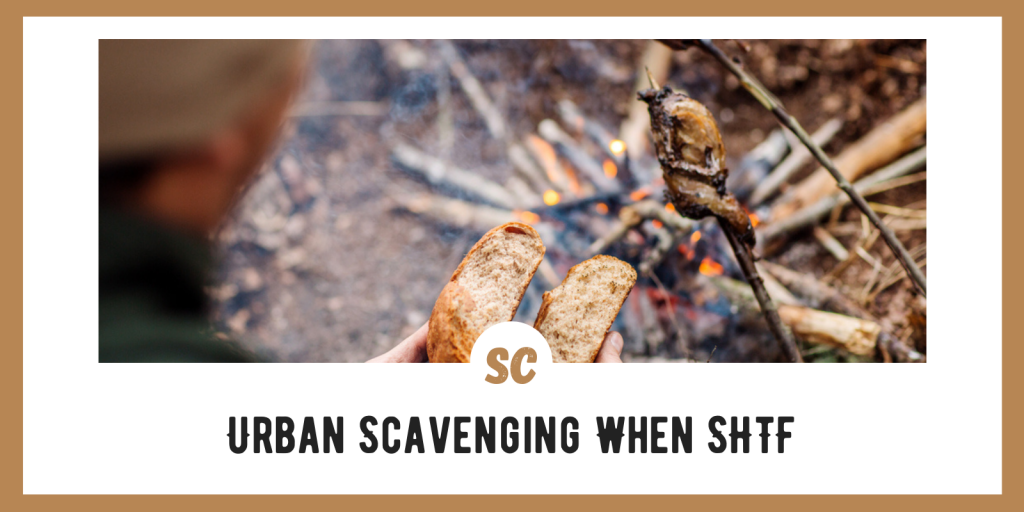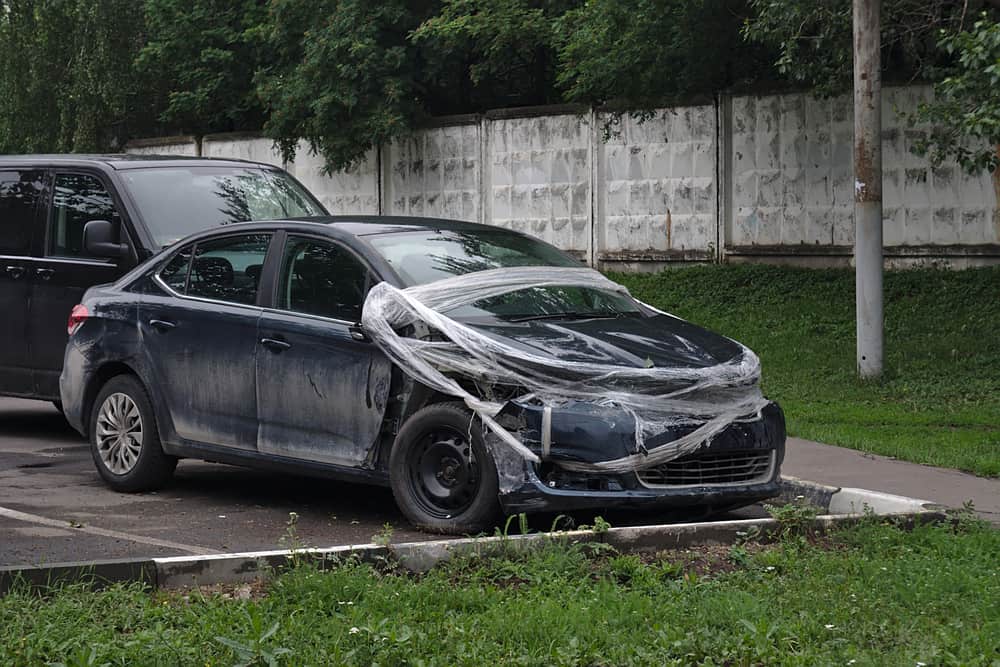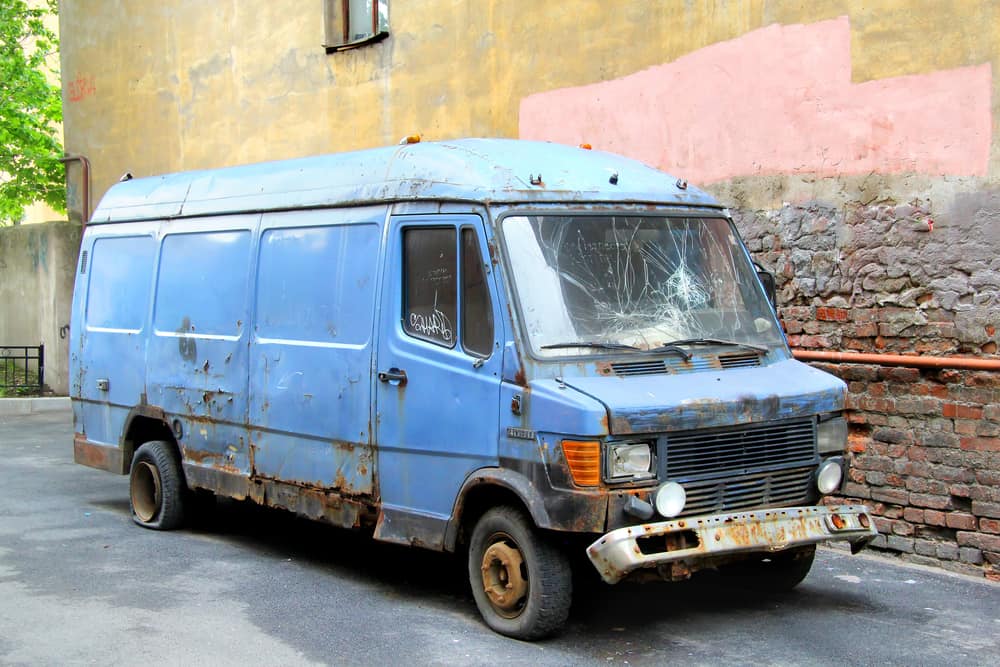There is a saying I have heard many times regarding survival situations and that is, “all bets are off.” Basically, it means that you will do whatever it takes in order to survive.
However, in my opinion, this does not mean a person should abandon their morals no matter what. For example, walking over to your neighbor’s house and forcefully taking supplies from them because you are unprepared is wrong.
But when things get bad, I mean really bad, like The Walking Dead and civilization is just gone bad, people are going to have to resort to scavenging. In fact, when life starts going downhill people are probably going to be scavenging before it even gets to that point.
Now, scavenging sometimes gets a bad rap because it is often confused with looting or stealing. In my mind, they are two completely different things.
SKIP AHEAD
The Difference with Scavenging
To me, looting and stealing are the same things, and they involve a person or people taking or forcefully taking things that do not belong to them. The items do not belong to them and they will be missed by the owner.
Scavenging on the other hand involves a person finding something that has been thrown away or abandoned and therefore it will not be missed. It is also important to remember that the item is not forcefully taken.
Risks Involved
The example I gave above about the neighbor, would be considered stealing and it is wrong. However, if the neighbor were to leave and abandon their home, never to return, scavenging supplies from the property is another matter.
Now, I am not trying to be preachy or over-explain something that may seem obvious, but I think this is an incredibly important point for people to understand.
And there are two reasons that it is important. First, and as I already explained, one is wrong and the other is okay. Secondly, understanding the differences is for your safety.
Scavenging can be inherently risky and if you come upon an area that is inhabited, you really only have two choices. Either ask if they would be willing to trade supplies through bartering or walk away.
The Reality of Scavenging
I promise I will get to the actual scavenging soon but there is one last item I need to discuss and that is the reality of scavenging versus the fantasy aspect of it.
In other articles or videos I have seen on this subject, food is the most talked about. They often offer suggestions like going to the grocery store and checking the stock rooms or under the shelves, or gas stations, or the break rooms in various establishments.
These are all good suggestions if you do it quickly enough after an event. However, once the transportation of goods ceases, people will panic and grocery stores will be picked clean within hours, not days.
Do not believe me? Just look at what happens to store shelves when a natural disaster or a bad storm rolls in. Now, imagine an event happening that is more widespread with no end in sight.
Like I said, checking all those places are good suggestions and if you have no supplies and no other options then it is not going to hurt to double-check those areas. Just do not go into the situation with high expectations.
Lastly, staying in an urban environment before and during such an event is usually not advisable. Not only is it a highly dangerous environment but it is going to be exceptionally difficult living there long term. Having said all this…
Urban Scavenging
When scavenging in an urban environment it is going to be helpful to have a few hand tools, like screwdrivers, pliers, wire cutters, a sharp knife, etc. A lot of things worth scavenging may need to be taken apart to obtain useful items.
Extreme care should be taken before approaching vehicles, buildings, and property as you do not know who is still around.
Common Vehicles
Vehicles alone have the potential of offering a lot of supplies. They are everywhere and there will be a good chance many of them will be abandoned.
Any useful supplies that were being transported in the vehicle would most likely have been taken by the owner before abandoning the vehicle. But if they were forced to leave the vehicle in a hurry some items could have been forgotten and left behind.
Thoroughly check the interior including the trunk, under seats, between seat cushions, glove compartments, consoles, check everywhere. After checking those areas, it is time to start taking pieces from the vehicle itself.
Wire and Seatbelts
Cordage is incredibly valuable because it can be used for so many things. Pull as much wire from the vehicle as you can and cut out all the seatbelts to be used as straps.
Seats
Seat covers can be cut and used as raw material for patching and for creating other items. The cushioning within seats can be dug out and used as insulation.
Tires
Pieces of rubber can be cut from tires and used as padding on tools or for other crafting purposes. It also burns well but do so at your own risk as it produces thick, black, noxious smoke.
Battery
This could be useful if the battery is not too far gone, and you know how to effectively use it. Otherwise, it will just be dead weight and it is better left behind.
Oil and Fuel
These two items can be transferred and used in other vehicles if they haven’t sat too long and haven’t gone “bad.” If they are no longer good to use in a vehicle they still have other purposes, such as a fuel source for burning.
Mirrors
Mirrors can be used as reflective devices for communications or for signaling for help. They can also be a handy way of carrying a small mirror to be used as a mirror.
Glass
Safety glass could be difficult to work with and may not offer large, usable pieces, but you may get lucky and find a piece that can be converted into a cutting tool.
Commercial Vehicles
This section refers to trucks, vans, and semi-trucks. The materials that can be scavenged in the previous section apply here. The added benefit of commercial vehicles is that they transport goods.
These will be another popular place for people to scavenge from but if you come across one that has not been picked over, you could find a lot of good supplies.
Pretty much everything you find in stores is transported by commercial vehicles at some point. So, you have the potential of finding water, food, medicine, clothes, tools, and a long list of other useful items.
It would not be uncommon to find a commercial vehicle locked, which is why you are going to want various hand tools with you.
Distribution Centers and Factories
These places can easily be overlooked by the average person. This is because they can be located off the beaten path and their industrial appearance is not always the most appealing.
Of course, the people that work in these buildings, which could be hundreds or even thousands of people, know well what is inside of them. So, you will have to contend with that.
Distribution centers are basically large warehouses that store food, medical supplies, tools, and almost anything else until they are ready to be shipped to their destination.
Cold storage facilities will likely be a bust. If there is no power, refrigerators and freezers cannot run, and goods will spoil.
What you can find inside of a factory will depend on what the factory makes or processes. But, all factories will have tools, batteries, possibly fuel, certain raw materials, fire extinguishers, and medical supplies in the form of first aid supplies.
Libraries
You may be wondering why in the world I am suggesting a library but in my opinion, this will be one of the most important places you can go to.
When the internet goes down the world of instant access to information will be gone. You will need to be able to take care of yourself and this means learning as much as possible.
Gather books on everything you can from cooking, sewing, making tools, history, ancient cultures, gardening, agriculture, electricity, vehicle, and machine repair, first aid, and all medical books, etc.
Though it is not brought up much, knowledge and books will be an invaluable resource that could also be used for bartering.
Veterinary Clinic
Hospitals, doctor’s offices, and pharmacies will be hit hard and striped quickly.
Veterinary clinics are sometimes overlooked because people think the items inside are strictly for pets. However, in the medical world, there is some overlap with what is used on animals and humans.
Water
When it comes to scavenging for water you will need basic tools for filtering and purifying, but in an urban environment, water can be sourced from a lot of different places.
Places to look for water include but not limited to:
- Toilets
- Pipes
- Water heaters
- Gutters
- Puddles
- Rooftops
- Areas that are not in direct sunlight
- P-traps under sinks
- Hoses
- Under and around bridges
- Golf courses
- Swimming pools
Keep a Map
It will be very helpful to keep a map or a running list of the places you have already scavenged.
Do not just mark down the locations you have already visited but take notes of resources that could be helpful to you in the future.
For example, maybe you come upon a cache of shoes, but you do not currently need shoes. Trust me that will change down the road and it will be nice to have a starting place when looking for specific items.
The downside is that there will be no guarantee that the items will be there when you return. Keeping a map is really only useful if you stay in the area or plan on circling back in the near future.
Announce Yourself
This may go against many people’s security guidelines and it is primarily meant for entering an individual’s personal property, such as a boat or a home, but it could save you from getting hurt.
Before entering a private residence, it may be a good idea to announce yourself. Now, this does not mean making your presence known to the world by yelling or being overly loud, but you should knock and say hello loud enough to be heard.
The last thing that you want to do is to startle someone prepared to defend their property at all costs.
Wrap Up
Scavenging should not be romanticized as it is dirty, hard work meant for surviving day to day. If you are at this point of living, be careful, think outside of the box, and keep your eyes open for anything that could be useful.
Thanks for reading and keep your heads on a swivel.
What are some other interesting areas that we missed that you think would be good places for scavenging? Sound off in the comment section below and let us know!






